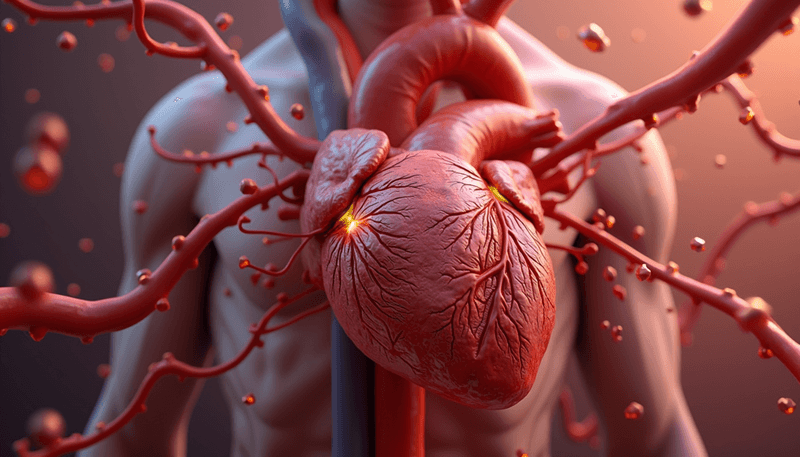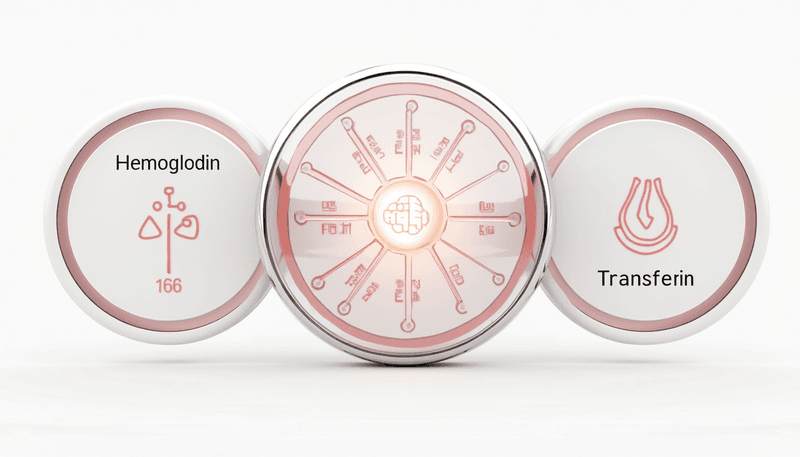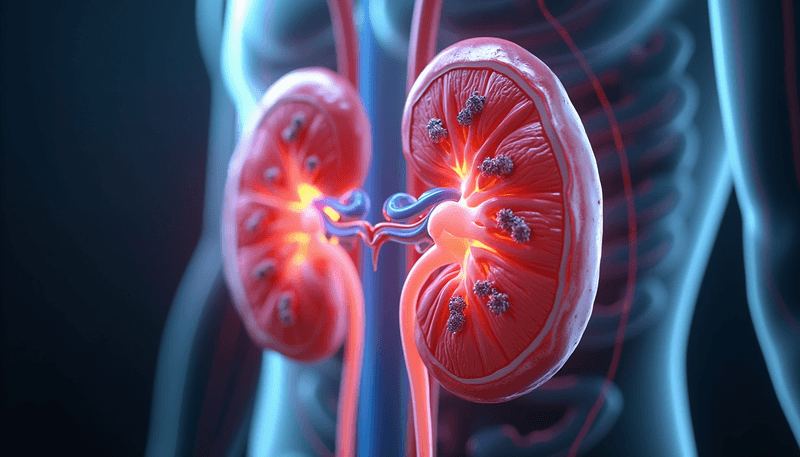Iron Status Affects Heart Health After Menopause

Every woman's heart tells a unique story after menopause. While we've long known about the connection between menopause and heart health, groundbreaking research has revealed an unexpected player in this relationship: iron. New research from the National Health and Nutrition Examination Survey reveals compelling links between iron status and heart disease risk in postmenopausal women, offering fresh insights into protecting your cardiovascular health.
Understanding Your Iron Status: More Than Just Numbers
Think of iron status as your body's economic system - it's not just about how much iron you have, but how well you're using it. The study tracked three key markers: hemoglobin (Hb), serum ferritin (SF), and transferrin saturation (TSAT). Each plays a unique role in your body's iron management.
Have you ever wondered why your doctor checks multiple iron-related tests instead of just one?
Just as a financial advisor looks at various indicators to assess economic health, these three markers together paint a complete picture of your iron status. Hemoglobin works like your daily spending money, ferritin acts as your savings account, and transferrin saturation shows how efficiently you're moving iron around - like your financial transactions.
The Heart-Iron Connection: A Balancing Act
The research uncovered something fascinating: women with healthy iron levels had better heart health outcomes. But here's the key - it's not about having more iron, it's about maintaining the right balance.
What if maintaining your iron balance could be as important for your heart as regular exercise?
Think of your body's iron system like a sophisticated thermostat. When levels fall too low (below 12 g/dL for hemoglobin) or climb too high (above 15 g/dL), your cardiovascular system may strain to compensate. The study found an optimal hemoglobin level around 13.1 g/dL - like finding the perfect temperature setting for your home.
The Kidney Connection: Your Body's Filter System
Perhaps the most intriguing finding was how kidney function, measured by serum creatinine, acts as a mediator between iron status and heart health. This is like discovering that your home's water filtration system affects both water quality and appliance performance.
Practical steps for monitoring your kidney and iron health:
- Schedule regular check-ups that include both iron and kidney function tests
- Stay hydrated - aim for clear or light yellow urine
- Limit processed foods and excess salt
- Include iron-rich foods in your diet, especially plant-based sources
- Pay attention to unusual fatigue or changes in energy levels
Are you taking these steps to protect your heart and kidney health? The study shows that small, consistent actions can make a significant difference in your long-term cardiovascular health.
Your Action Plan: Simple Steps for Better Health
The research points to three key actions every woman can take:
-
Monitor Your Numbers: Regular check-ups should include iron status markers and kidney function tests. Keep a record of your results and track changes over time.
-
Balance Your Diet: Focus on iron-rich foods like leafy greens, lean proteins, and legumes. Include vitamin C-rich foods to enhance iron absorption.
-
Listen to Your Body: Pay attention to symptoms like unusual fatigue, shortness of breath, or changes in energy levels.
The connection between iron, kidney function, and heart health offers new opportunities for proactive health management. Small, consistent steps today can lead to better heart health tomorrow.
Ready to take control of your heart health? Start with scheduling a comprehensive check-up that includes iron status and kidney function tests.
Take the first step today by scheduling a check-up with your healthcare provider to review your iron status and overall cardiovascular health. Your heart will thank you for it.

Dr. Marcus Anthony Bennett
Dr. Marcus Bennett is a Seattle-based freelance medical writer and consultant specializing in mid-aged women's health. With a background in internal medicine and over a decade of experience in preventive care, he is dedicated to making complex health topics accessible. Dr. Bennett completed his MD at Johns Hopkins School of Medicine and residency at the University of Washington. His empathetic and evidence-based approach combines traditional medical expertise with a focus on health disparities, often incorporating practical lifestyle advice. Known for his clear, engaging communication, Dr. Bennett provides actionable insights to empower his audience.







